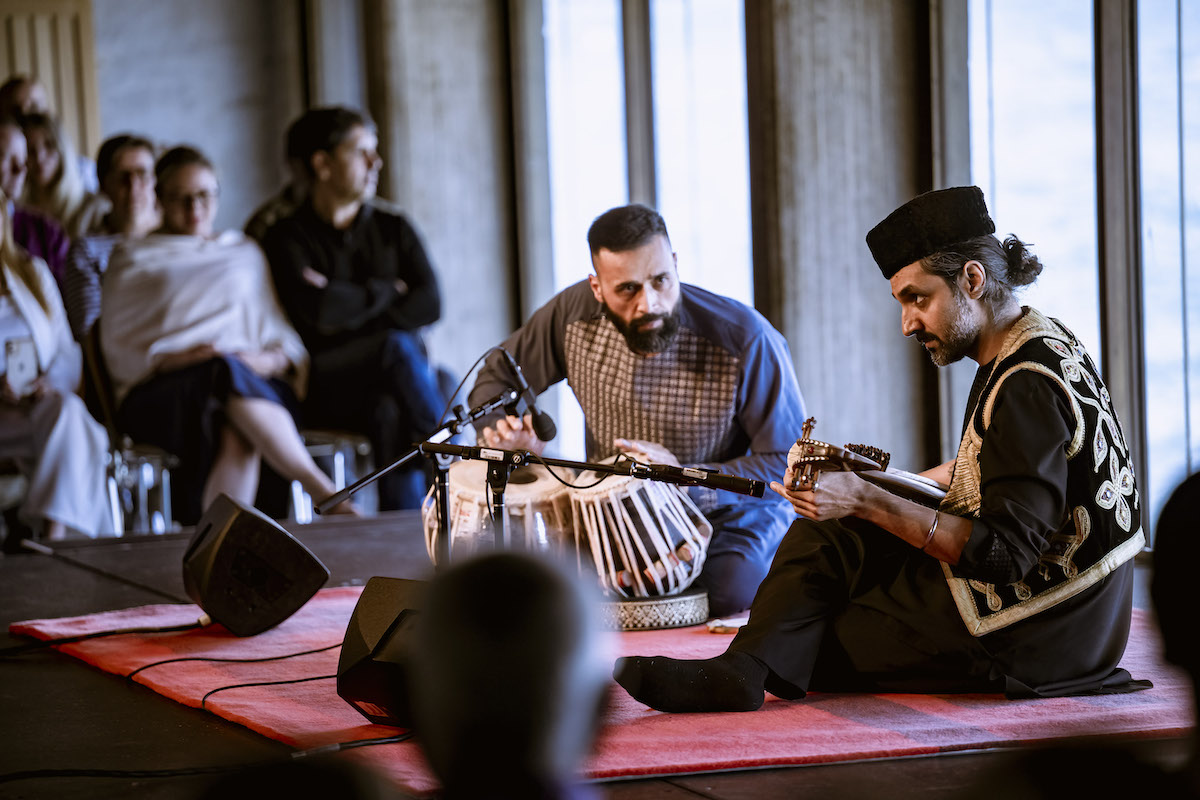The timeless sound of the rabat is no longer heard in Afghanistan. Not since the Taliban regime banned music, along with most other basic human rights.
For this reason award-winning composer, performer and producer Qais Essar believes it is even more compelling for him to keep playing the music of his homeland and to bring to audiences around the world the magical sound of one of the oldest string instruments in the world.
Grandfather of the lute, the rabat can be either bowed or plucked. Essar’s Afghan version of the instrument has four main strings and a set of sympathetic strings, like those found on a sitar and other Indian instruments. Its tone is less mellow and resonant than its cousin the oud, more the plangent bite of the banjo.
Accompanied by tabla player Murtaza Damoon, US-based Essar brought two ragas to the tranquil Utzon Room at Sydney Opera House on a sunny afternoon for what he described as a “journey through a musical time portal”.

Murtaza Damoon and Qais Essar, Utzon Room, Sydney Opera House. Photo © Cassandra Hannagan
The first piece was a rare Sikh raga, Raga Dhanashree. Playing alone for...
Continue reading
Get unlimited digital access from $4 per month
Already a subscriber?
Log in










Comments
Log in to join the conversation.